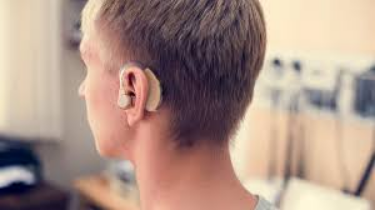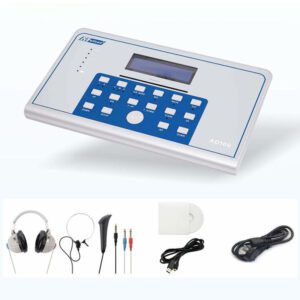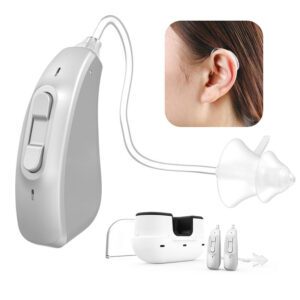hearing Loss is a common condition that affects millions of people around the world, especially as they age. However, it can be difficult to recognize when hearing loss has become severe enough to require hearing Aids. Often, it happens gradually, and people may not realize how much of their hearing ability they’ve lost until it starts interfering with their daily life. If you’re wondering whether it might be time to consider hearing aids, this guide will help you understand the signs, symptoms, and situations that may indicate a need for them.

Signs You Might Need Hearing Aids
- You Frequently Ask People to Repeat Themselves
If you often find yourself saying “What?” or “Can you repeat that?” during conversations, especially in quiet environments, this is one of the most common early signs of hearing loss.
- You Struggle to Hear in Noisy Environments
Having trouble following conversations in restaurants, crowded rooms, or social gatherings may indicate difficulty distinguishing speech from background noise — a common sign of sensorineural hearing loss.
- People Seem to Be Mumbling
If you feel like everyone around you is mumbling or speaking too softly, the issue might not be their volume or clarity — it could be that you’re missing certain frequencies in their speech.
- You Turn Up the Volume on Devices
Do your family or friends complain that the TV or radio is too loud? If your preferred volume is much higher than others’, it could mean your hearing is declining.
- You Feel Mentally Fatigued After Listening
Straining to hear throughout the day can leave you feeling mentally exhausted. This is because your brain works harder to interpret incomplete sound signals, which is common with hearing loss.
- You Miss Everyday Sounds
Are you no longer hearing birds chirping, the doorbell, or your phone ringing? Missing out on common sounds may suggest high-frequency hearing loss.
- You Avoid Social Situations
Many people with hearing loss start withdrawing from social situations because it’s too frustrating or embarrassing to keep up with conversations. Social isolation is a serious consequence of untreated hearing loss.
- You Have Tinnitus (Ringing in the Ears)
Tinnitus is often associated with hearing loss. While not everyone with tinnitus needs hearing aids, many people with both conditions find significant relief with hearing aids that include sound therapy features.
Medical and Age-Related Considerations
- Over Age 60? Get Tested Regularly
Age-related hearing loss (presbycusis) is very common in older adults. Experts recommend getting a hearing test every year after age 60, even if you haven’t noticed any major symptoms.
- History of Noise Exposure
If you’ve worked in a noisy environment (like construction, military service, or factories) or frequently listened to loud music, you’re at higher risk of developing hearing loss earlier in life.
- Sudden or Progressive Hearing Changes
Sudden hearing loss is a medical emergency, while progressive loss should still prompt you to see an audiologist. In both cases, early intervention is key.
Why You Shouldn’t Wait
Delaying treatment for hearing loss can have wide-ranging consequences:
Cognitive decline: Studies have shown a link between untreated hearing loss and conditions like dementia and Alzheimer’s disease.
Depression and anxiety: Struggling to communicate can negatively impact your mental health and overall well-being.
Safety risks: Not hearing alarms, traffic, or other warning sounds can put you in danger.
Strained relationships: Miscommunication and frustration can affect your personal and professional relationships.
What to Do Next
If you suspect that you might need hearing aids, the best step is to schedule a hearing test with a certified audiologist or hearing care professional. The test is quick and painless and will give you a clear understanding of your hearing ability.
After diagnosis, your provider may recommend hearing aids based on:
The type and degree of your hearing loss
Your lifestyle (active, social, quiet, etc.)
Your preferences for size, technology, and budget
Modern hearing aids come in a variety of discreet styles and are more effective than ever before. Some even connect to your smartphone, offer Bluetooth streaming, and include artificial intelligence features to adapt to your listening environments.
Conclusion
Knowing when to get hearing aids is about more than just age — it’s about recognizing the signs that your hearing is no longer supporting the life you want to live. If you’re experiencing symptoms like difficulty hearing conversations, frequent misunderstandings, or turning up the volume on devices, it’s time to take action. hearing Aids can dramatically improve your quality of life, helping you stay connected, engaged, and safe. Don’t wait — get your hearing checked and take control of your hearing Health today.


